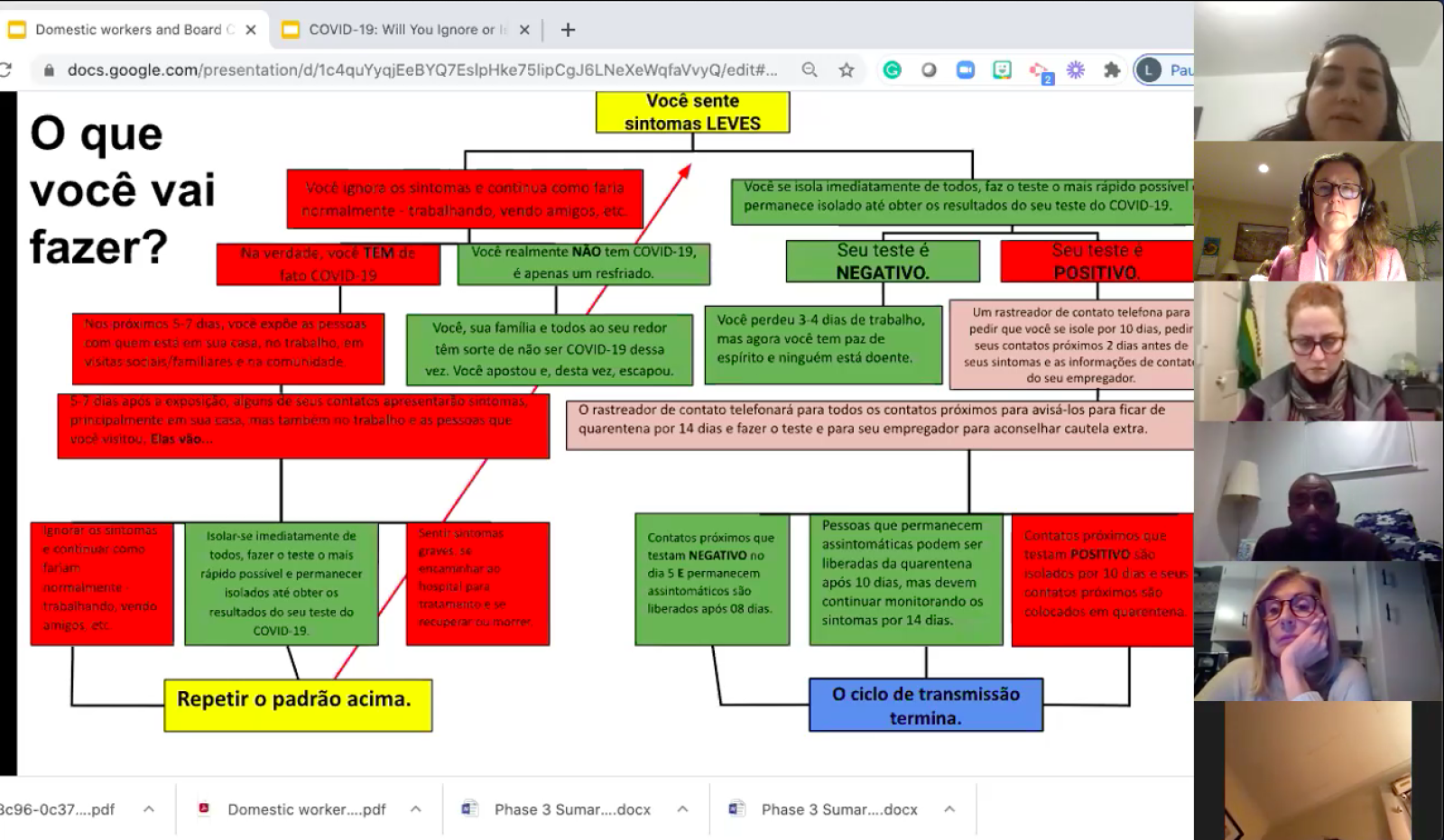More than 30 domestic workers and community partners gathered via Zoom Thursday night to discuss jobsite safety protocols with Island health officials in an ongoing outreach effort to stem the pandemic’s spread.
The meeting, organized jointly by the Island health agents and community outreach organizations, focused specifically on the Island’s essential workers in the house and commercial cleaning industry, and came after similar meetings with Island clergy and contractors approximately two weeks prior.
The entire meeting was translated from English to Portuguese, with Debora Da Costa and Poli Bellan Wilson providing translation services. Schools ELL director Leah Palmer served as the host and meeting moderator, and a spokesman from Martha’s Vineyard Hospital also attended.
The meeting began with a presentation from Tisbury health agent Maura Valley regarding the Island’s current case count and community spread, and was followed by West Tisbury health agent Omar Johnson describing the Island’s Phase 3 construction and jobsite guidelines, many of which apply to domestic workers. Those include regulations regarding mask wearing at all times, even in vehicles.
Chilmark health agent Marina Lent then discussed the importance of contact tracing, explaining through a “decision tree” the importance of isolating and getting tested immediately upon feeling virus symptoms, like a cough or a fever. All health agents emphasized that companies should immediately inform health agents and building inspectors if they test positive, and cannot wait more than 12 hours to do so.
After the presentations, Ms. Palmer asked a variety of complex questions regarding coronavirus safety protocol, including what domestic workers should do if a household member, like a child, is experiencing a runny nose or fever?
“The [parent] is not yet required to quarantine,” Ms. Lent answered. “But it is very important to be more cautious. To not ride in the car with somebody else. To say, I will clean this part of the house, I will not go where the others are, I will be in a separate space. And the test results from the child will come back relatively quickly. And if they are positive, then the mother needs to quarantine also.”
Another tricky issue that came up is what domestic workers should do if they believe a client in a household they are cleaning is sick. Can they continue to work, or should they refuse?
“Never feel that you have to work if you notice that someone in the house is sick or exhibiting flu-like symptoms,” Mr. Johnson said. “Do not hesitate to refrain from working in the house if that is the case.”
Health agents also stressed the importance of staying vigilant and answering the phone if a contact-tracer calls, and said that they do have translation services available for non-English speakers. Ms. Palmer concluded by thanking all participants — particularly the essential workers who joined the meeting.
I also want to acknowledge how important the participants here who are working in our businesses, and in our homes, with cleaning, are to the community,” Ms. Palmer said. “You are ambassadors to Covid safety, so ensuring that everyone who you’re working with gets the information that we share today, is really important.”




Comments (1)
Comments
Comment policy »